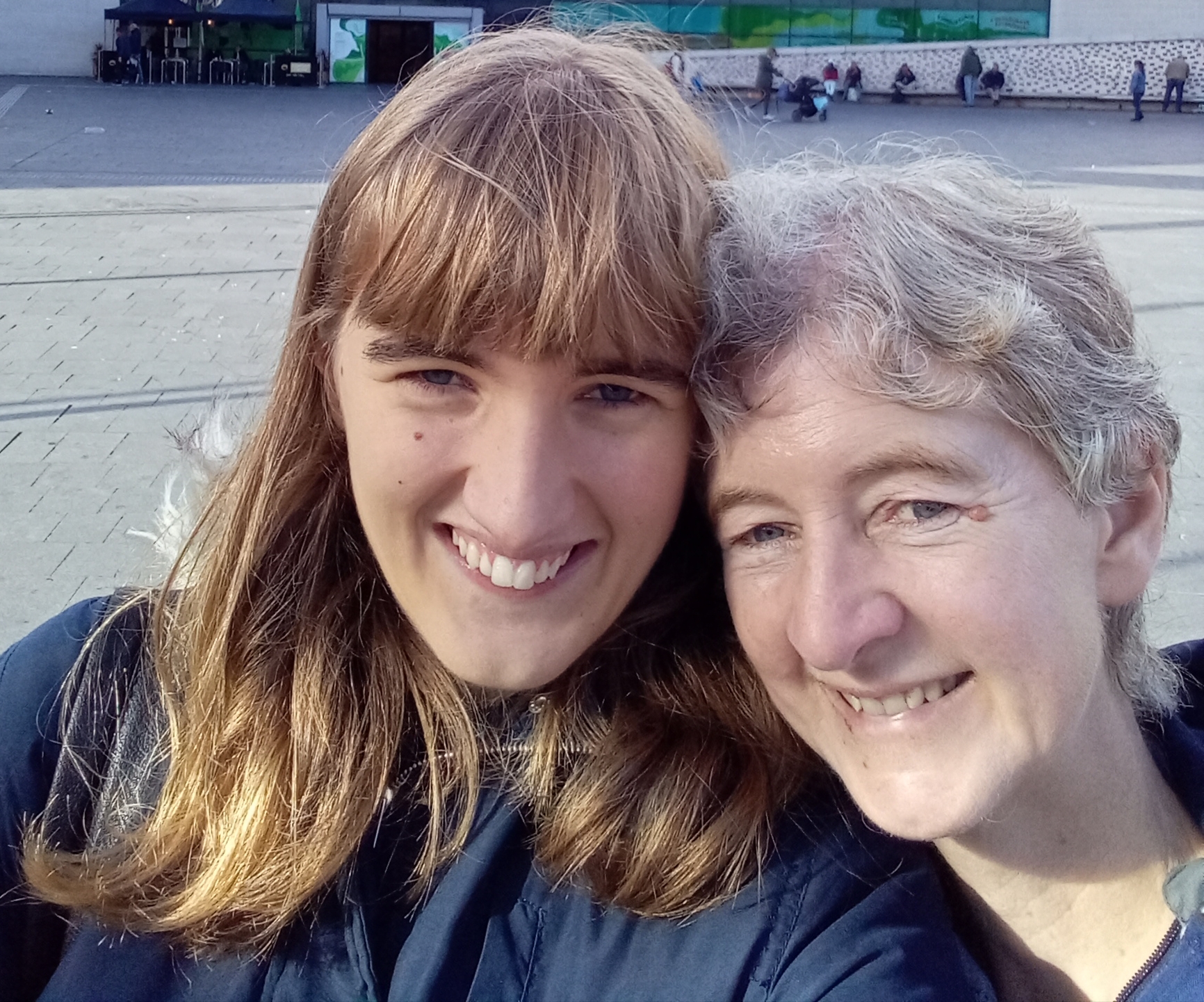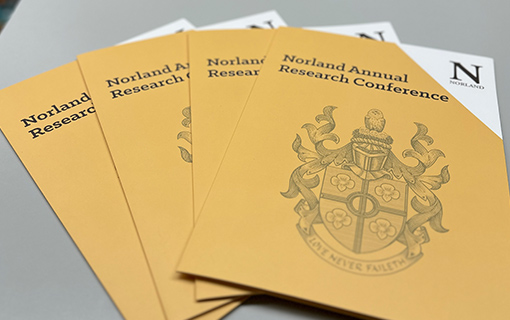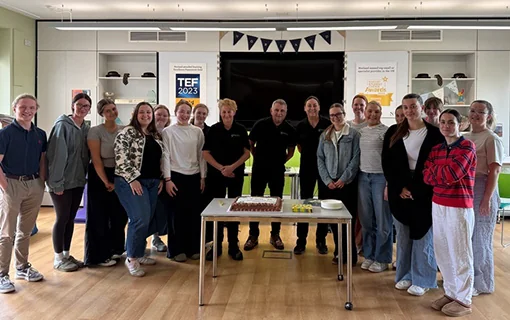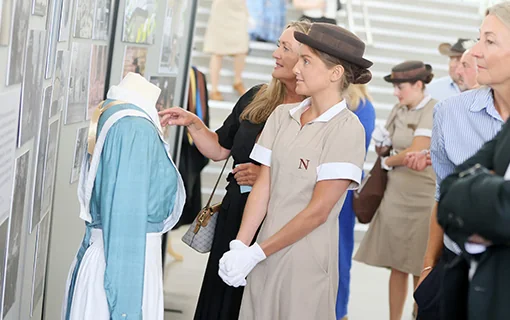How I fund my studies: Jess
30 March 2023

Jess is in her first year at Norland (Set 46) and is a recipient of the Emily Ward Bursary, which provides a number of means-tested bursaries to support students with the cost of their studies.
Below, she discusses how she funds her studies alongside the bursary and shares her tips for budgeting in your first year at university.
Please can you introduce yourself.
Hi, my name is Jessica and I’m part of Set 46. I’m from Rugby, in the West Midlands, which is quite a long way away from Bath! Prior to starting at Norland, I completed four A-Levels in French, History, English Language and Textiles.
How did you hear about Norland and why did you choose to study here?
When I was researching universities where I could study Primary Education on UCAS, I discovered Norland. The uniform intrigued me, and after looking into the course a bit more, I decided that I wanted to come here. The main reasons why I decided that this is the right place for me included the friendly and welcoming atmosphere, and the high level of student support. Also, how small the college is in comparison to other universities is great, as coming from a small girls’ grammar school, the transition didn’t feel too overwhelming.
How have you found your first few months?
My first few months have been great, as I have really enjoyed getting to know Bath and my fellow students. I was worried about making friends and I needn’t have been. I have made a great group of friends, who are all lovely. My highlights so far include going to Thoulstone Park in Welcome Week, where we got to go on climbing walls and a giant zip-line, and the weekly sewing lessons where I have enjoyed making bunting and refining the sewing techniques that I learnt at A-Level. Food and nutrition lessons have also been a highlight as all the recipes are fun and enjoyable to do and can be easily adapted to preferences and dietary requirements. For example, the lecturers have been wonderful at adapting recipes to accommodate my honey and pepper allergies and ensuring that I can cook safely and successfully. My favourite recipe so far has been making Christmas gingerbread, as I enjoyed decorating them and being messy!
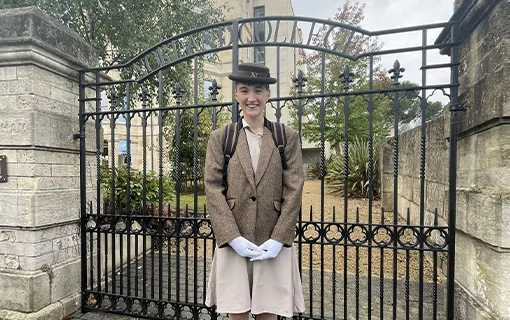
How do you fund your studies?
I’m proud to say that I’m from a single parent, working-class family, but funding Norland has been quite a challenge for me, as I’m having to self-fund the three years. I think that money should never be a barrier to opportunities though, and so with the support of my amazing mum and sister, I decided to apply, knowing that I would have to work and study simultaneously to afford to study. I’m not a stranger to hard work, having worked five different jobs a week whilst completing my A-Levels. I work with many different families, including two jobs I found from the Norland Job Shop. These are both wonderful nannying jobs helping children with Special Educational Needs (SEN). Working to pay fees has meant that I have had to forego some social activities and extra-curricular opportunities, but I consider it worth it to study at Norland. It also means that I don’t get to go home as much as I’d like, but this makes the times that I’m with my family more special. I still do find time to crochet in the evenings as I consider it important to have some daily downtime, amidst the hecticness. I also receive an Emily Ward Bursary from Norland, which acts as a starting point to help pay the tuition fees.
How do you manage your rent and bills?
In terms of rent, I pay £530 and around £20-30 on top for bills each month. This is quite cheap, compared to some of my friends (some are spending £650+ on rent), but I consider myself lucky as I have a wonderful room about five minutes from college and I share with three lovely flatmates.
Budgeting is not easy. If you’re stuck, speak to the finance team who can help you work it all out, they really helped me work out my weekly budget. Budgeting can be tricky at times, but I’ve found the best thing to do is shop around. For example. I’ve found some essentials cheaper in different supermarkets, so I’ll pop in and compare to find the best deal each week. Don’t be afraid of the own brands too, as they will save you money. On a small budget, you will have to forego some luxuries, but there are always ways of making it work (special offers, reduced later in the day and so on).
What advice would you give to prospective students and applicants about overcoming the financial hurdles of studying at Norland?
My main advice is aimed towards people who have grown up in low-income families or social housing, like me. Don’t be put off Norland, just because of the fees. If you want to study here, there will be a way to, and there will always be jobs to find. It will be harder, as you’ll have to miss out on things and sacrifice luxuries, but at the end of the day, you should never let money stop you achieving. Also, coming from a low-income background should never dictate your future. With the right emotional support (for me this is my amazing family and friends), you can achieve anything.
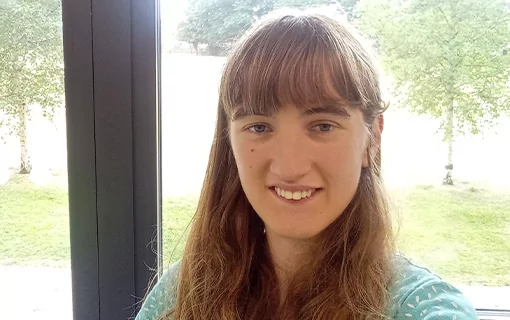
Do you consider the benefits you’ll get once you are a fully-qualified Norlander make the fees worth it?
I think the benefits of studying at Norland outweigh the financial difficulties. Bath is a beautiful city to live in and everyone is so friendly. Also, the fact that we are guaranteed a job with an average £40k starting salary when we graduate is a big positive as I know how tough the job market is at the minute and rising unemployment levels. The fees are high, which is because of the extensive training and support, but I know that the challenges will be worth it in the end, as hopefully I will be able to fulfil my childhood dream of buying my mum a house.
What are you most looking forward to in the future?
I’m looking forward to everything really, especially the future sewing and cooking projects. My long-term ambition is to become a nanny who specialises in SEN, using my own personal experiences growing up, as well as gaining more experience through the next couple of years. One of my big passions is teaching Makaton, a language close to my heart, so I look forward to teaching more people about the language and some signs, as I believe everyone should know basic sign language. In terms of placements, I’m looking forward to hopefully going to Three Ways School – a local school for children with a wide range of special educational needs – and meeting the amazing children there. After qualifying, I hope to move to the seaside and nanny for a few years and spend every precious minute with my mum.
